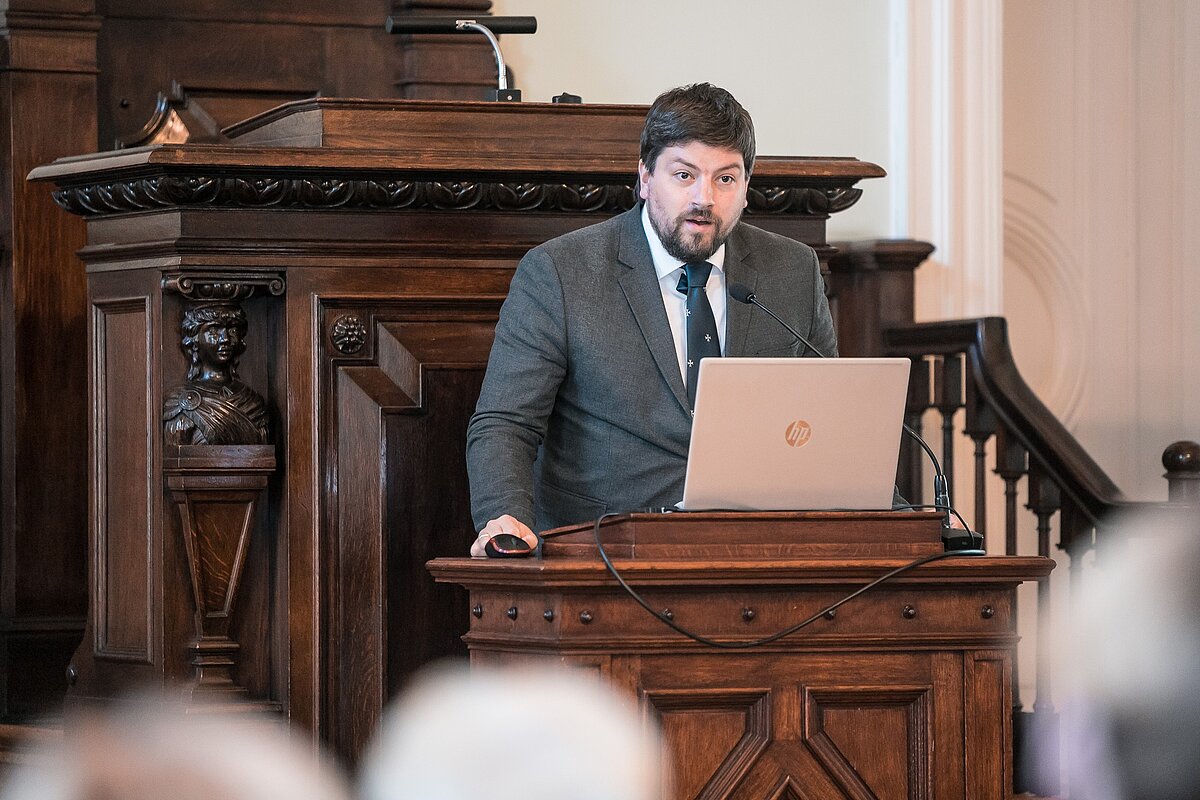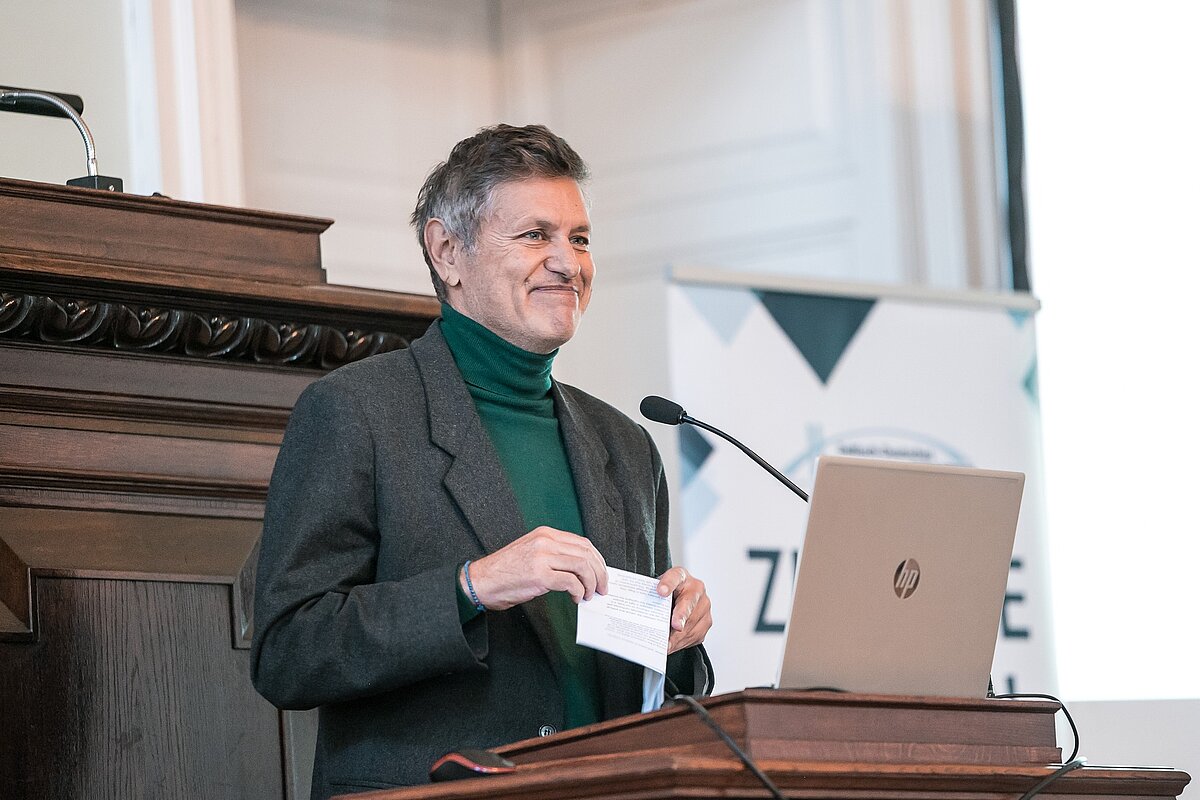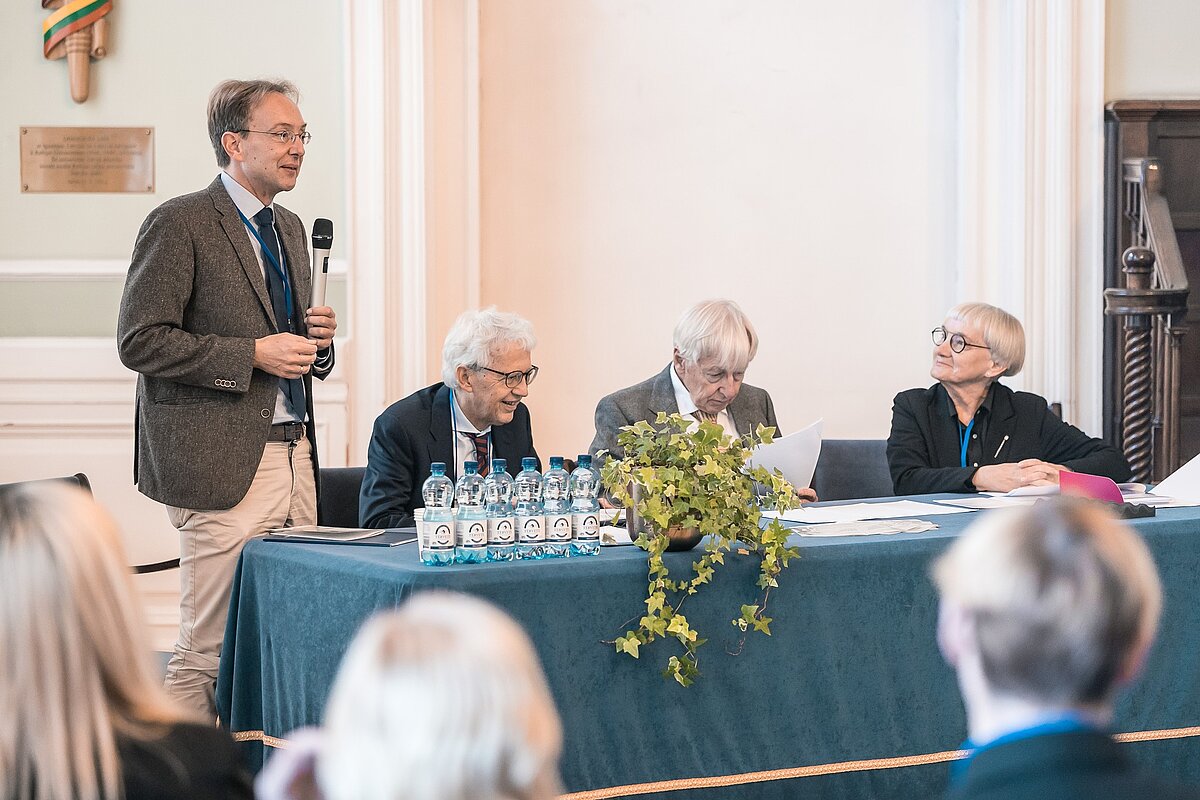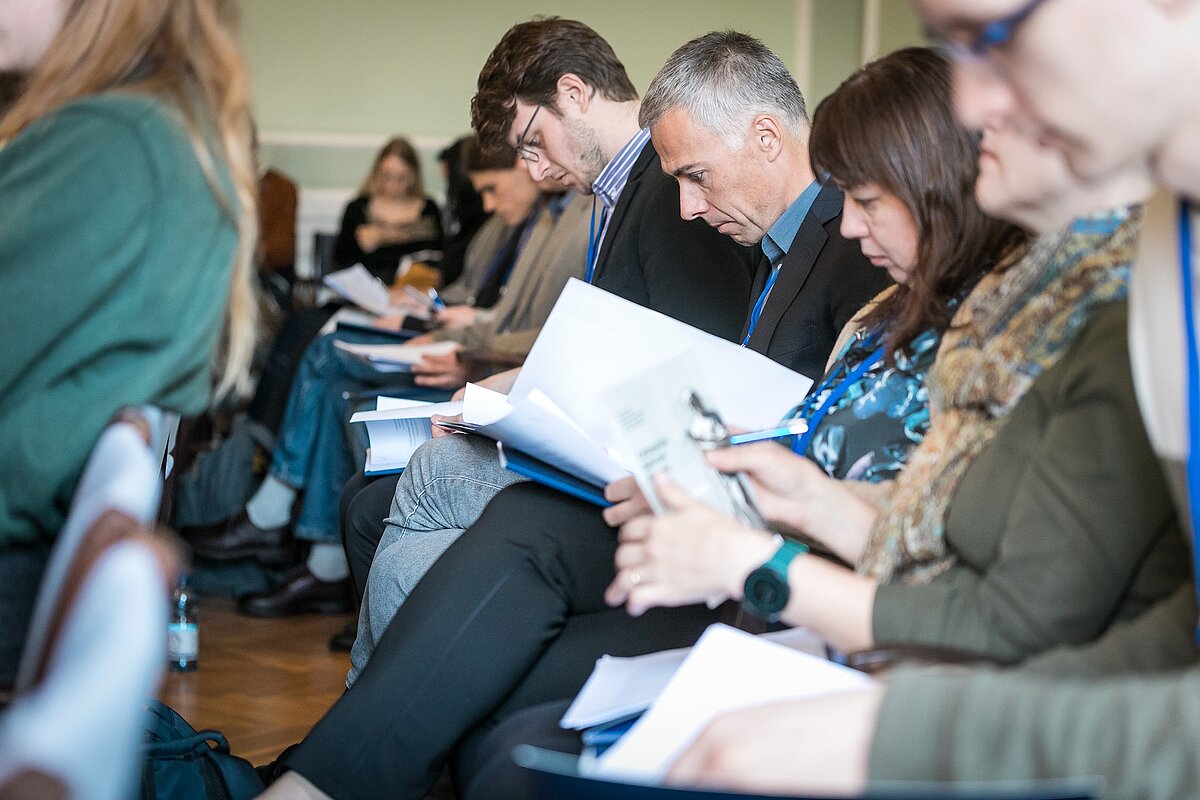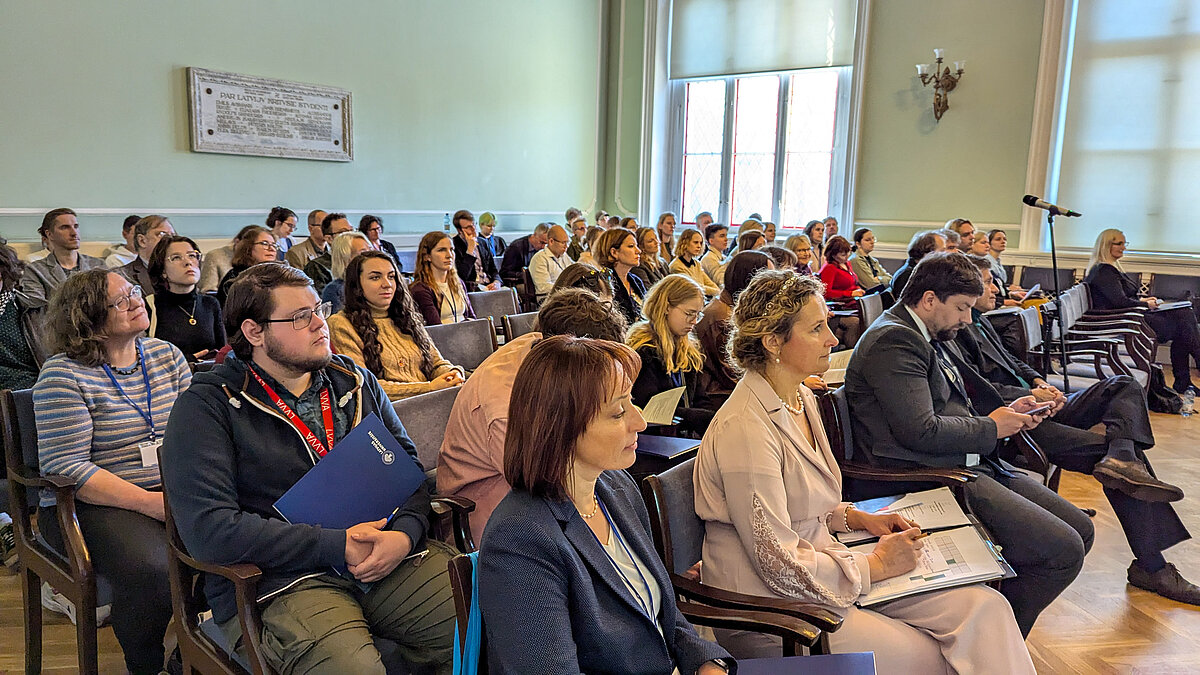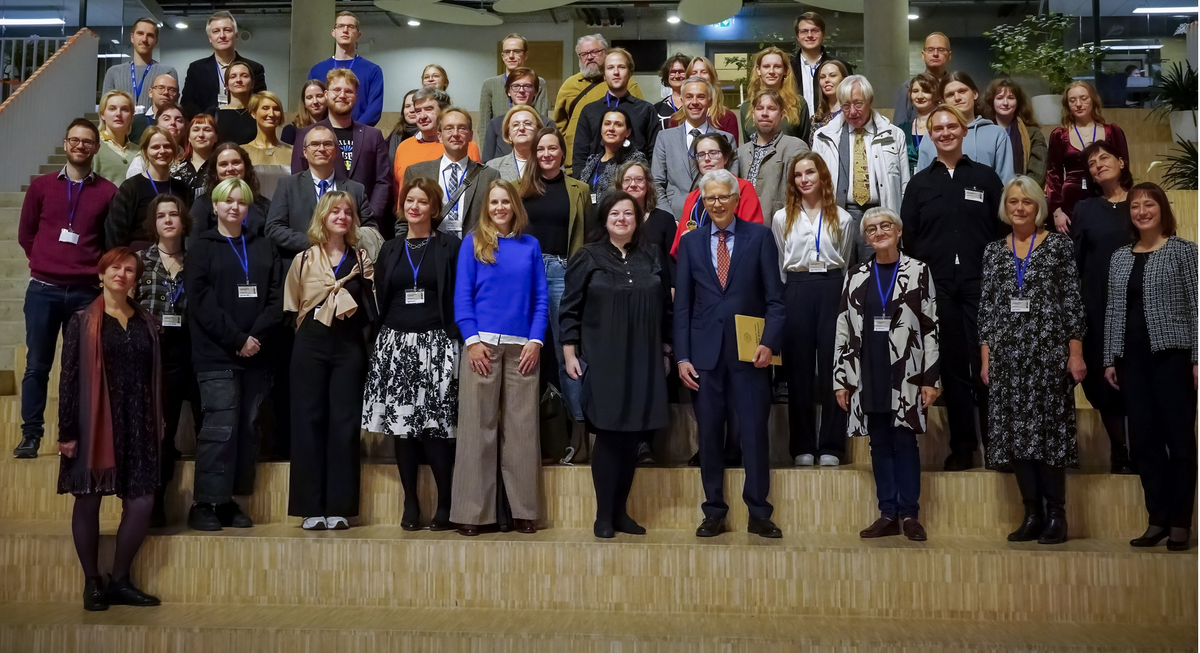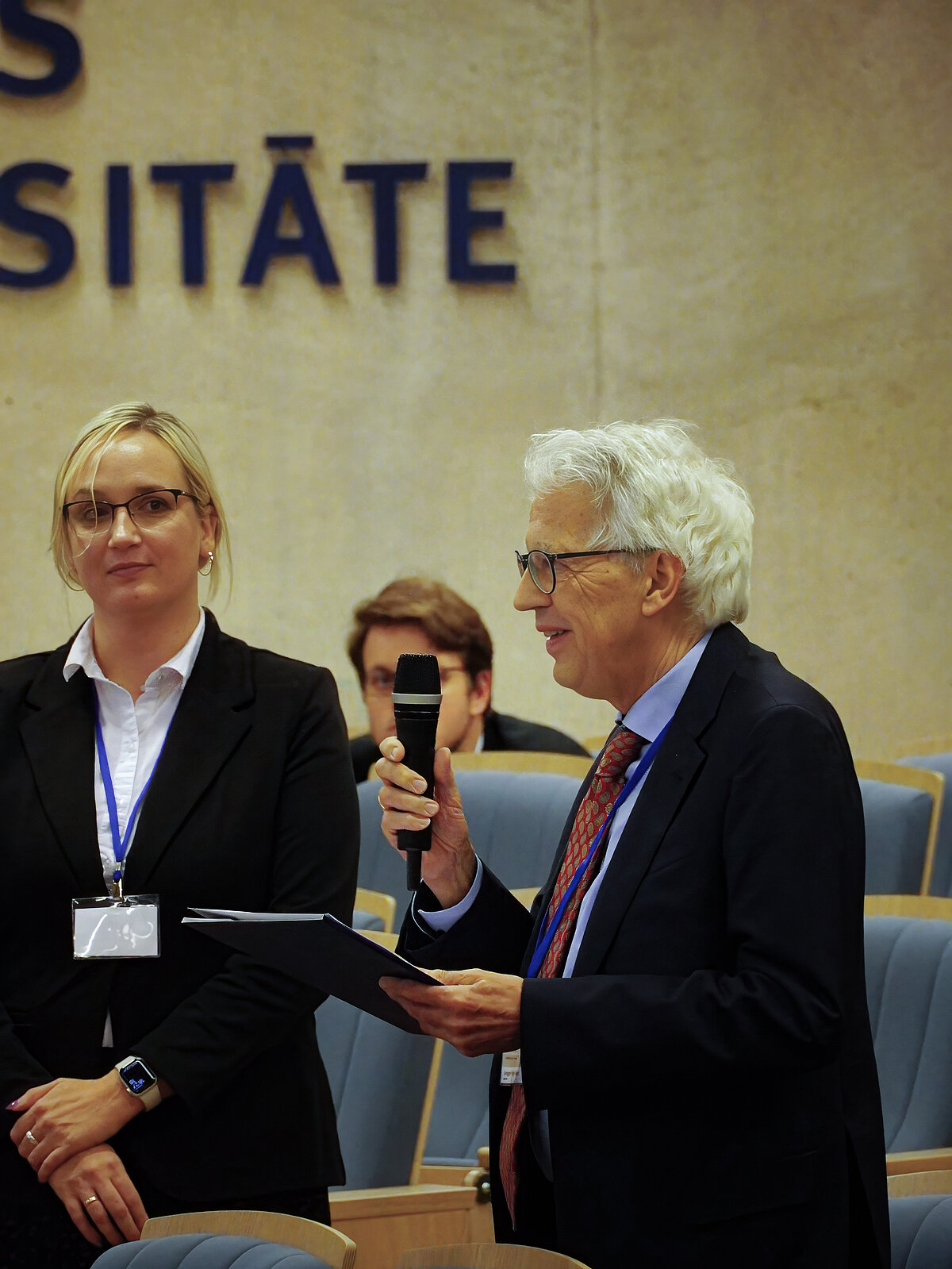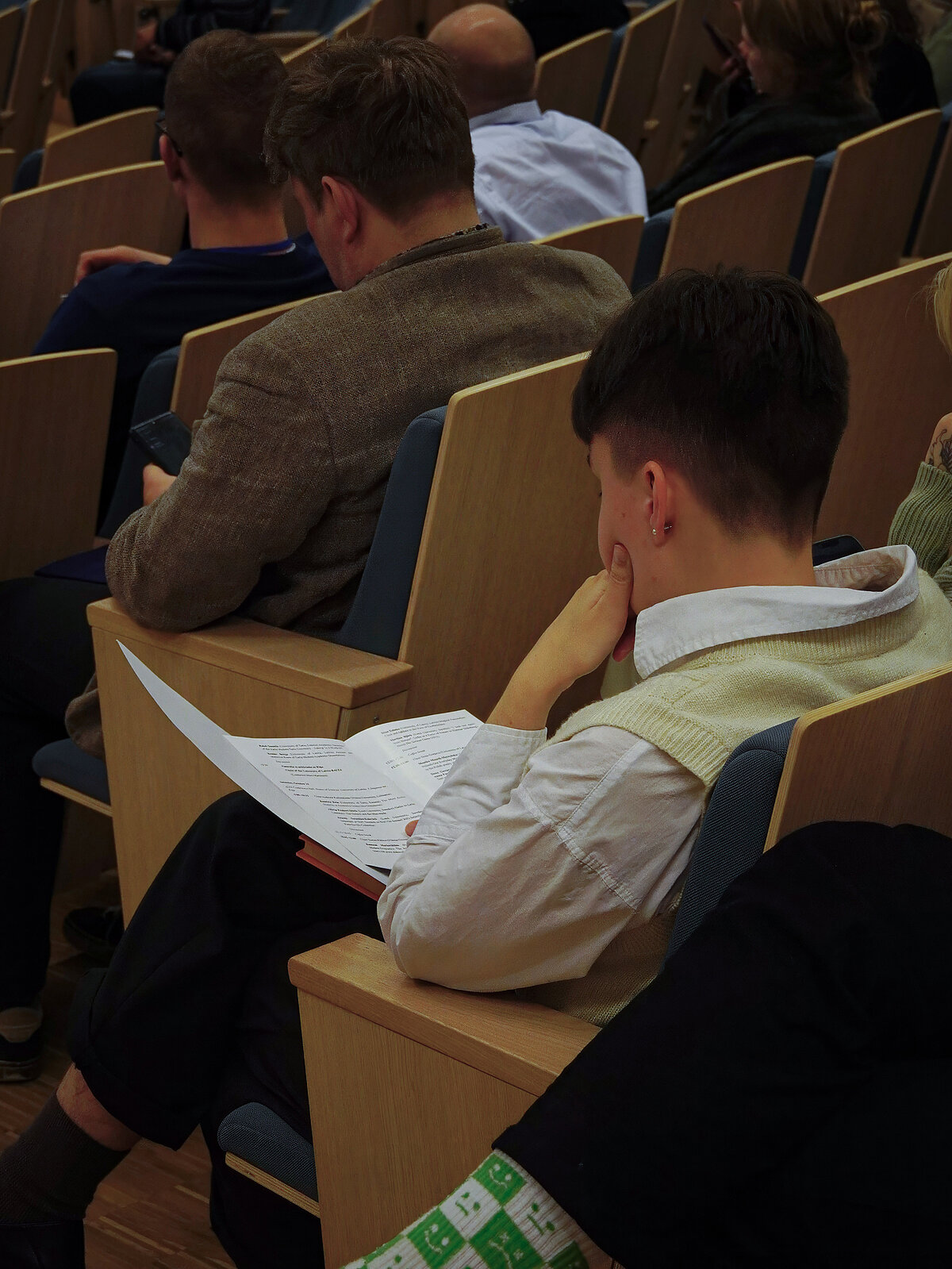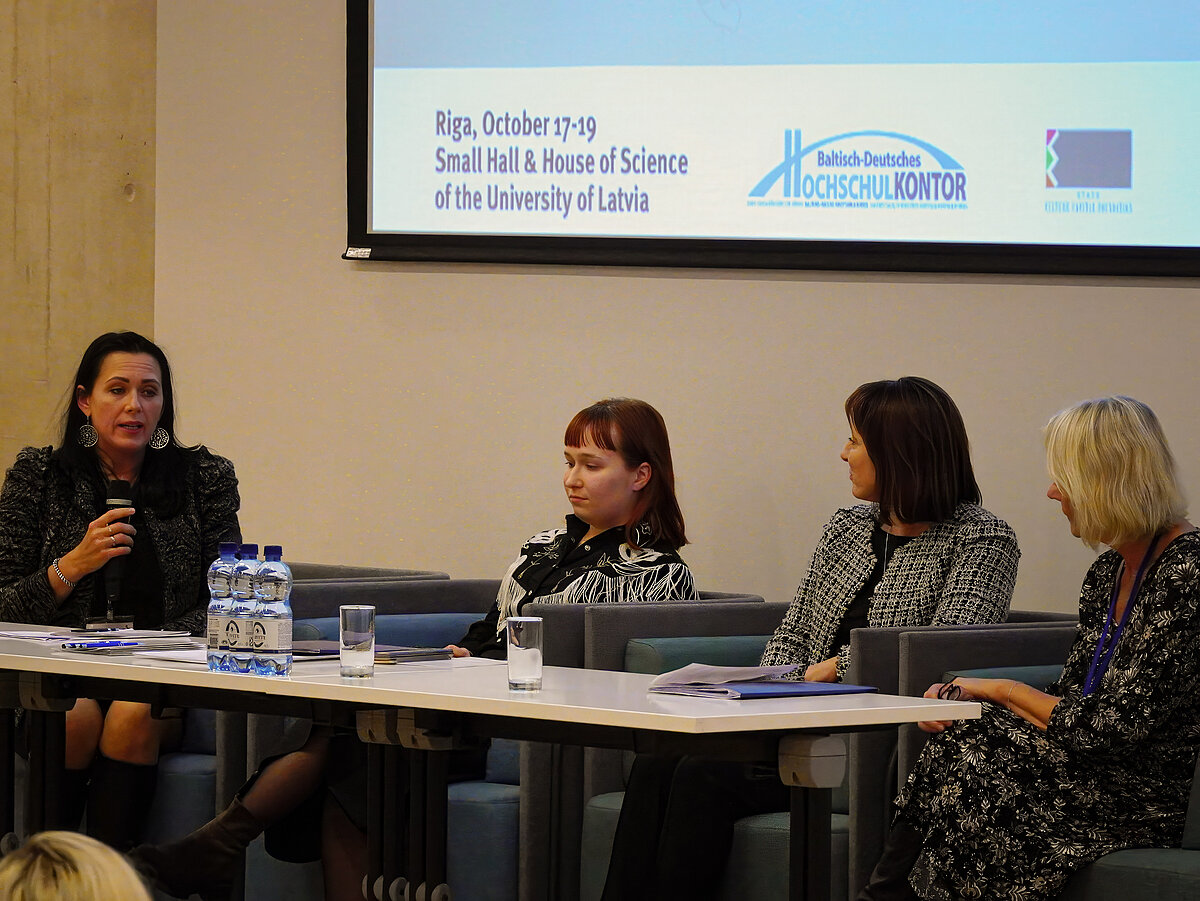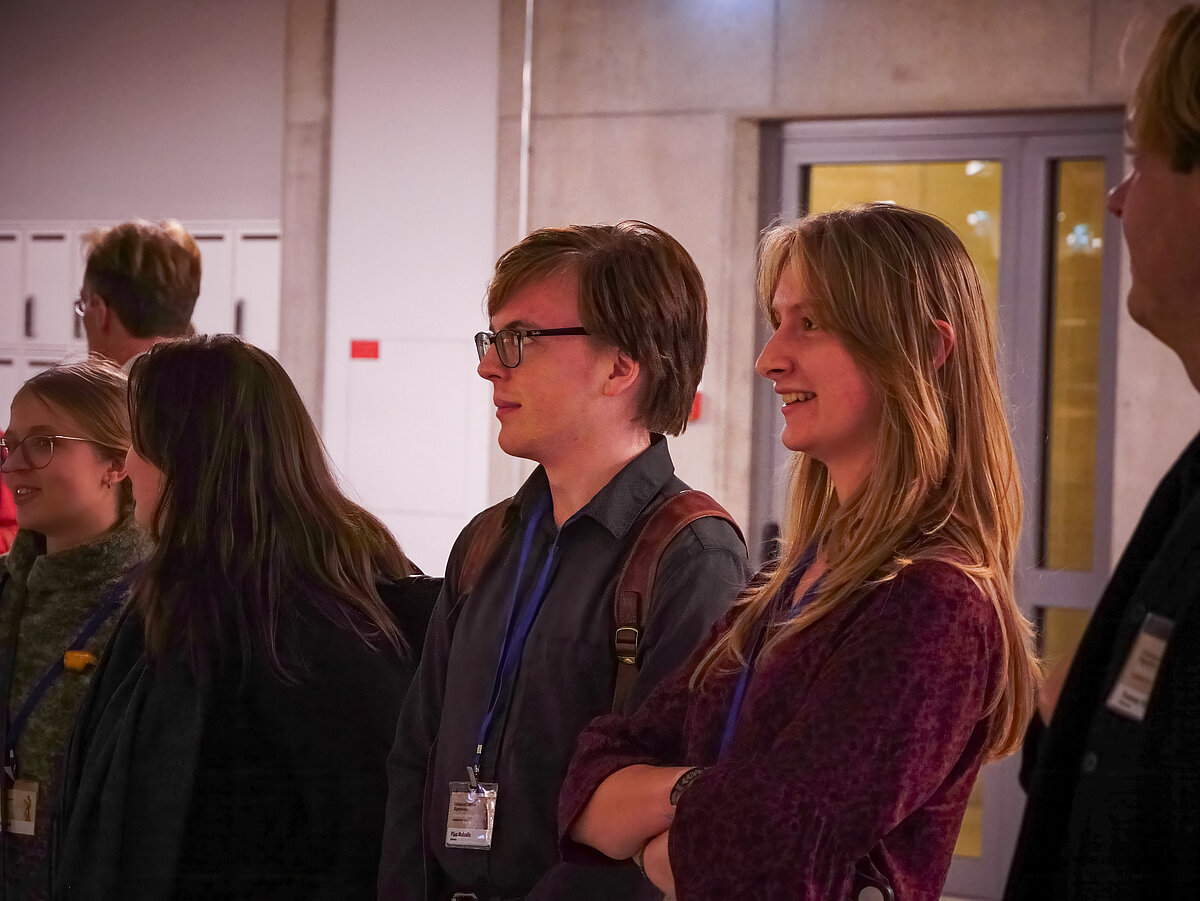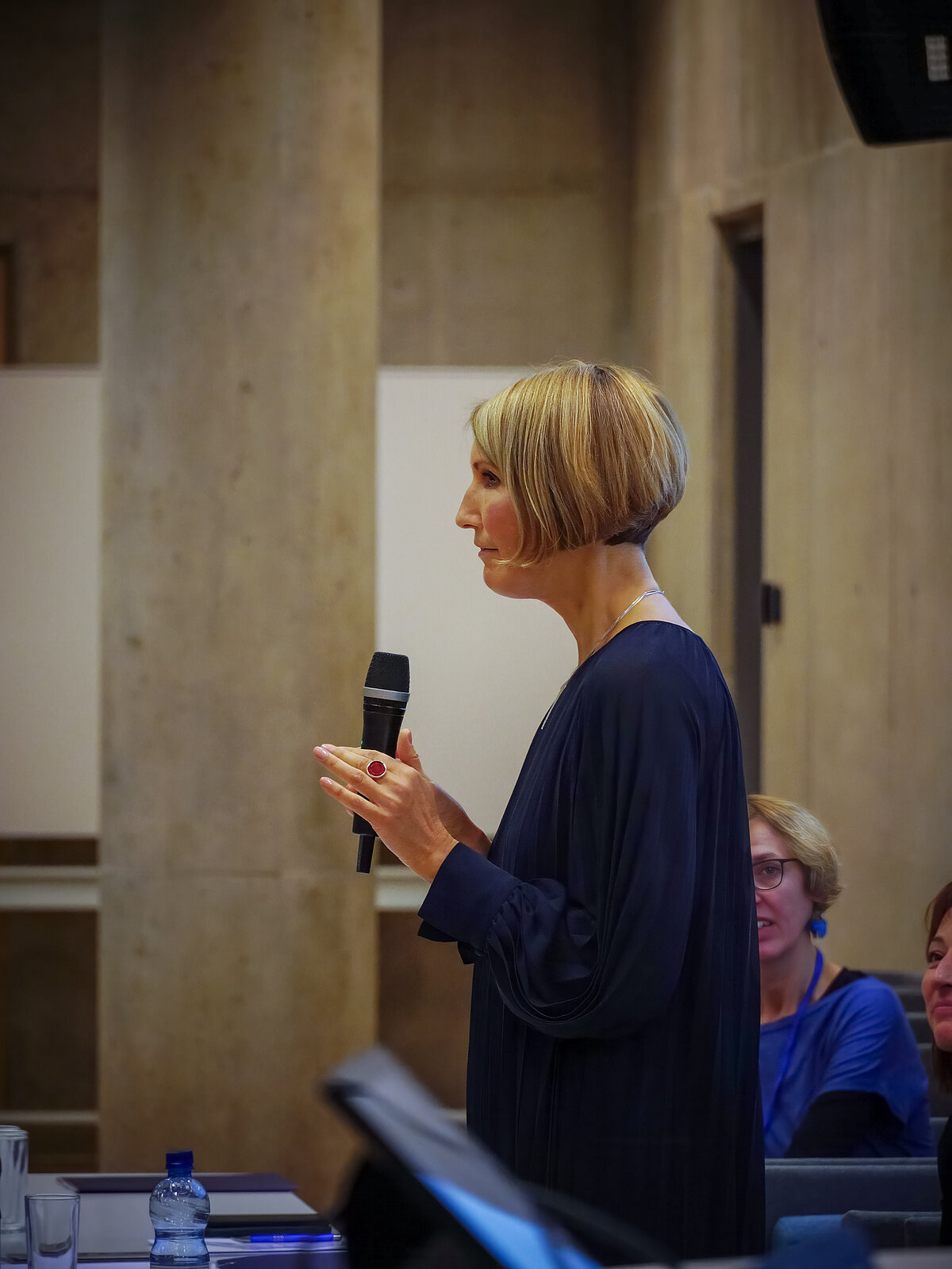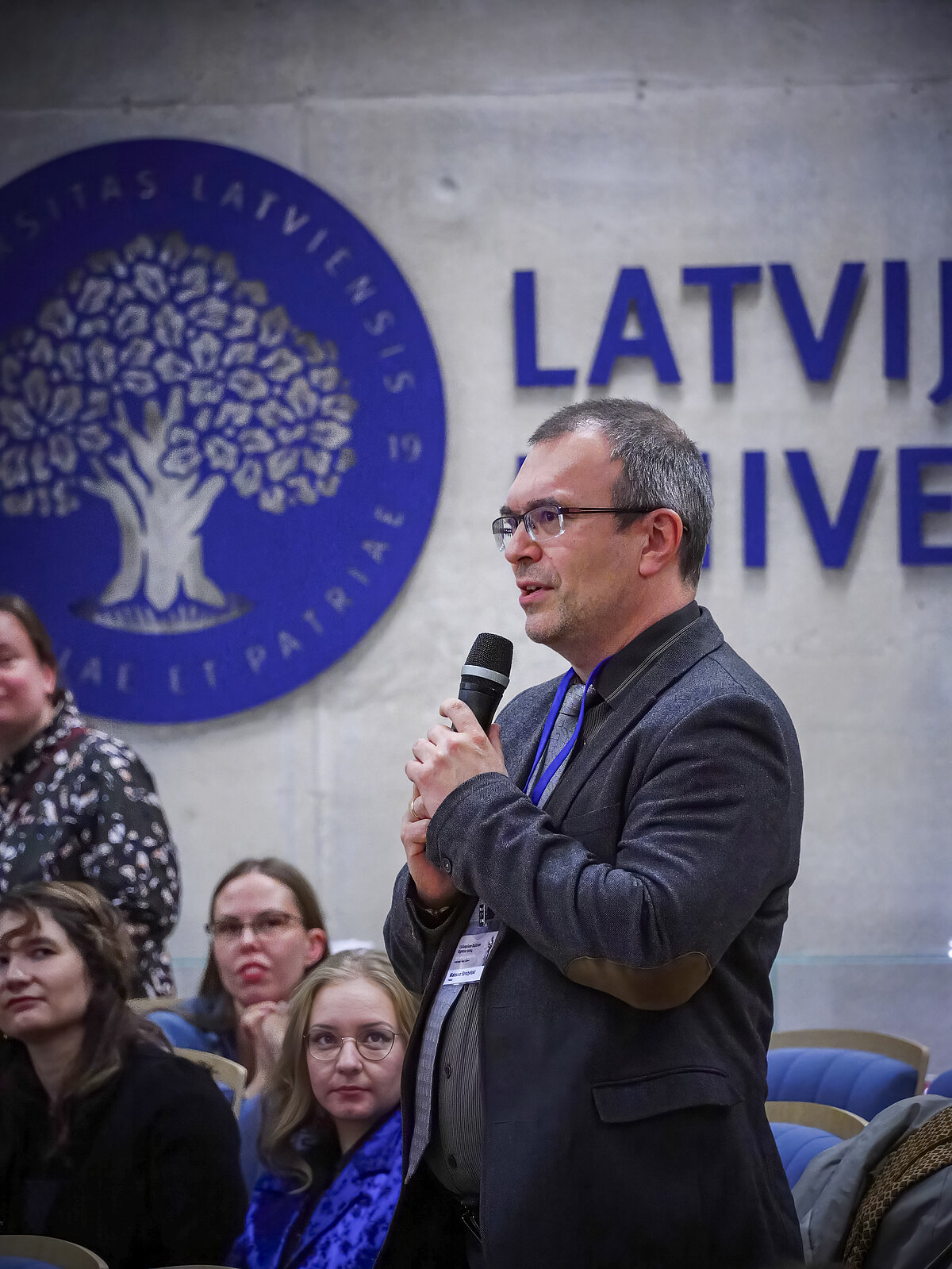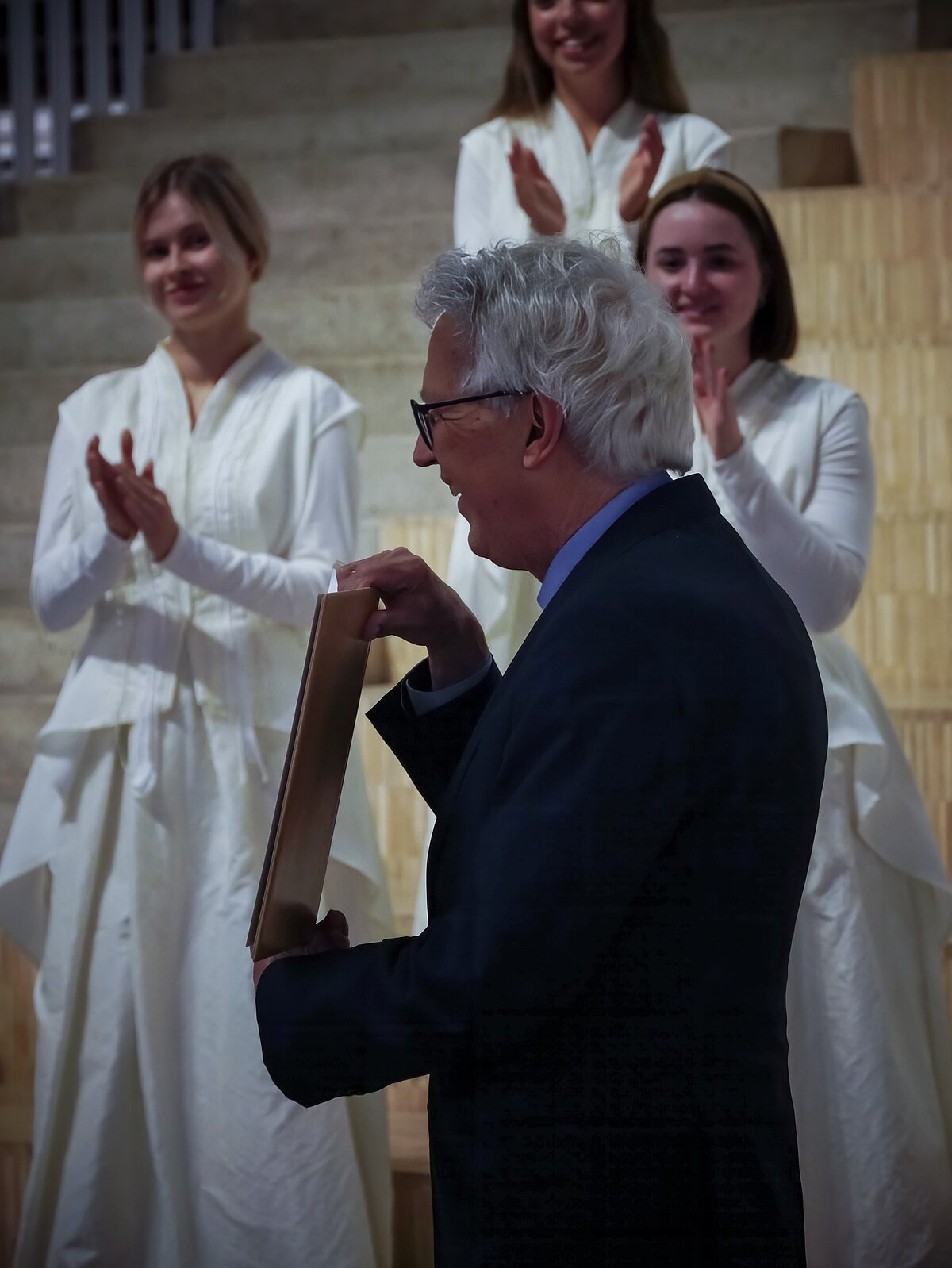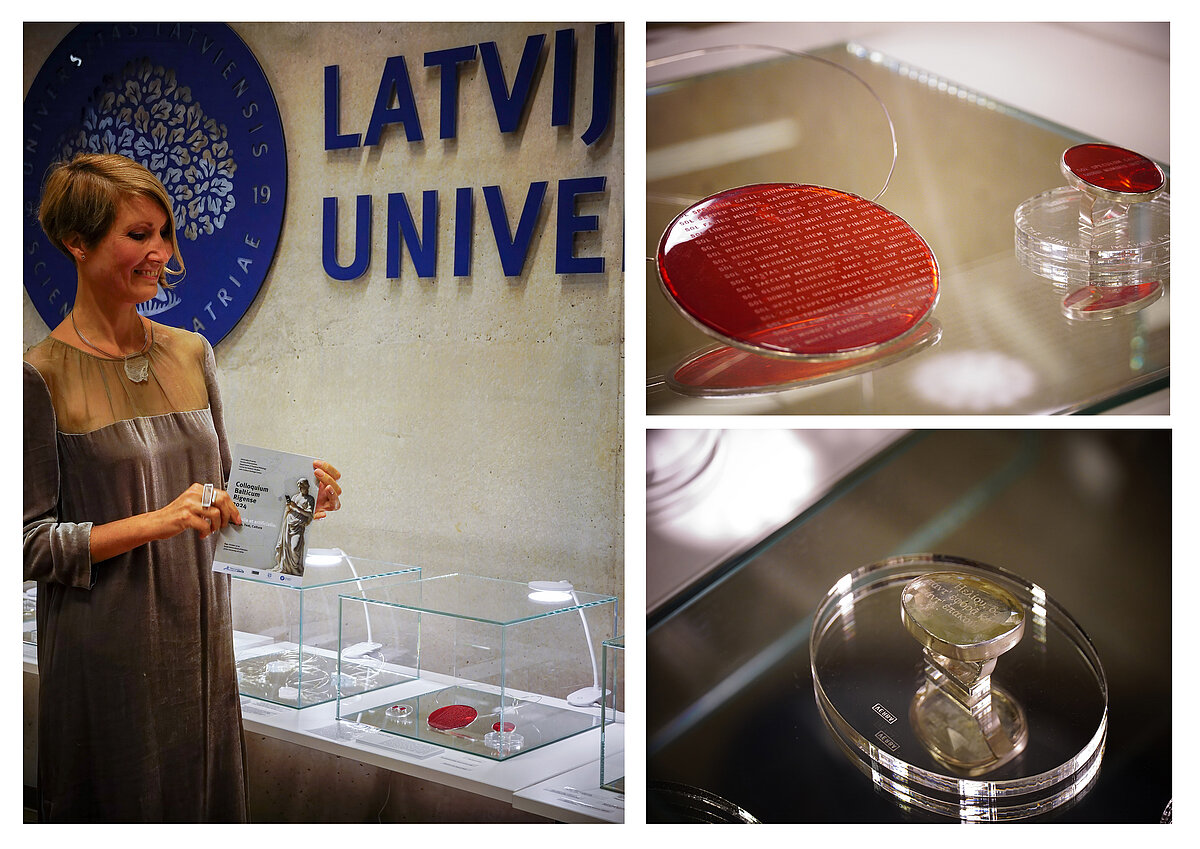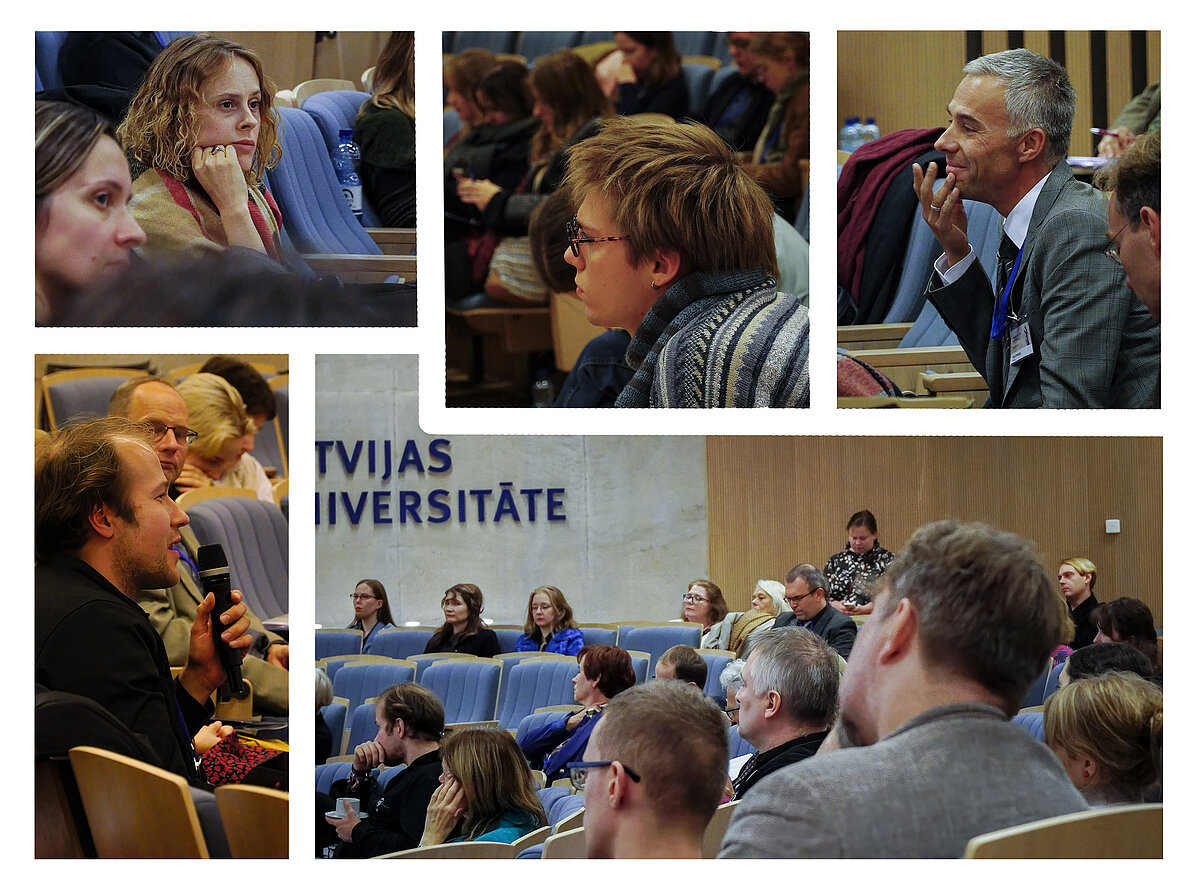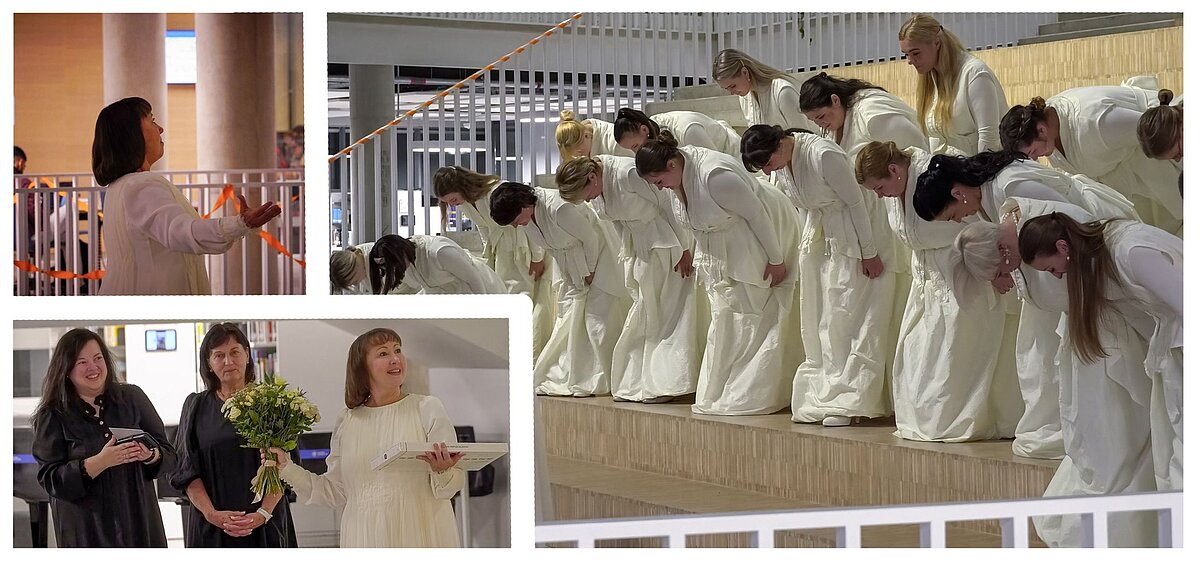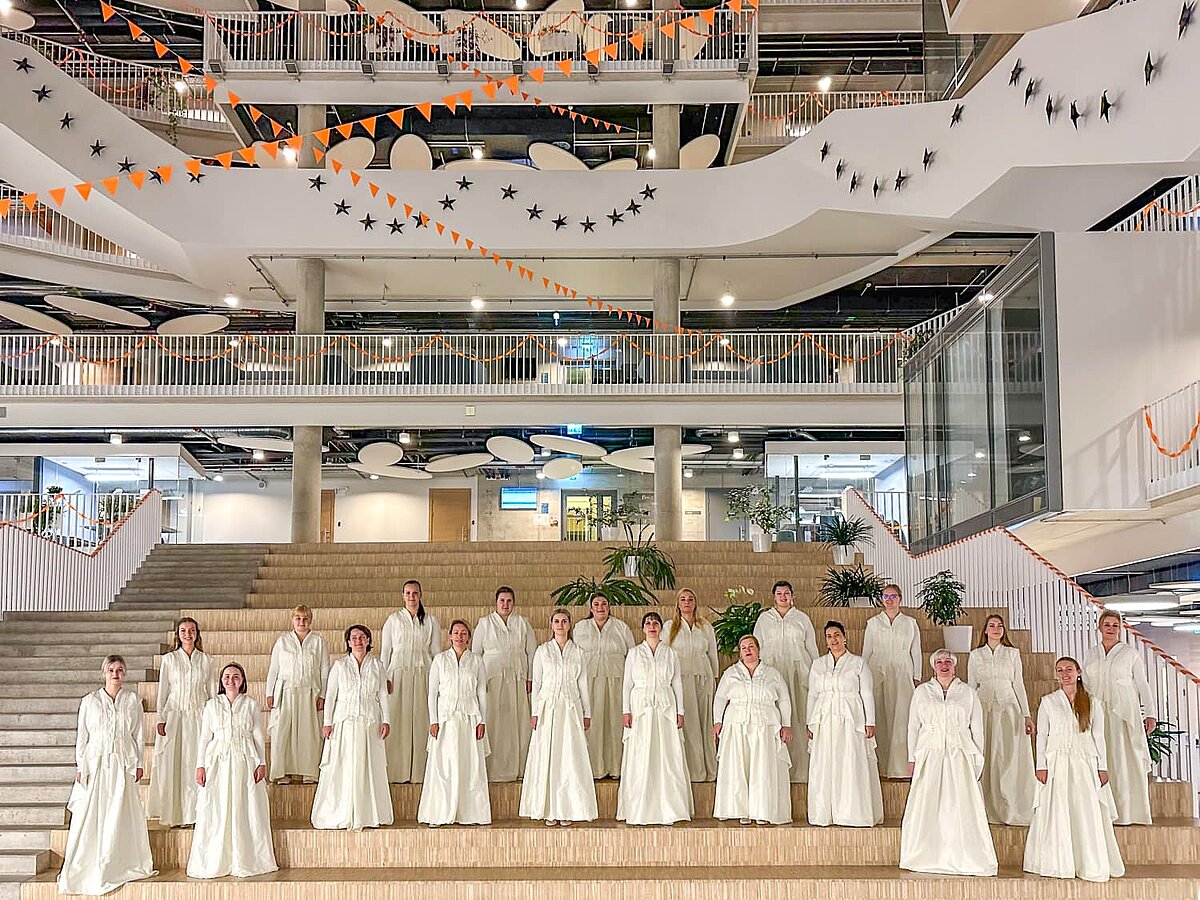
— Photographers: Toms Grīnbergs, Indra Ašaka, Dina Eiduka, Ilona Gorņeva, Māra Marnauza.
The 20th Colloquium Balticum, an international scientific conference on classical studies, returned to Riga this year, taking place on October 17–19. This year’s theme, “Naturalia et Artificialia: Language, Text, Culture,” invited participants to explore the interplay of the natural and artificial within the cultural legacy of Greece and Rome, and its reception.
The comprehensive range of topics connected ancient heritage with current research issues. Presentations proposed questions about different aspects of natural and artificial: technological solutions mentioned in ancient literature from a contemporary scholarship standpoint, as well as theories on the interpretation of artificial intelligence in the context of ancient history, Aristotle’s reflections on mimesis of the natural, ecocritical perspectives in bucolic poetry and Neo-Latin texts. Texts – literary and inscription – from both ancient and modern times were studied in the time transcending categories of natural and artificial.
The conference was opened in a ceremony with greetings by the director of the Department of Classical Philology of University of Latvia, Assoc. Prof. Gita Berzina, Vice-Rector for Research of the University of Latvia, Assoc. Prof. Guntars Kitenbergs, the Ambassador of the Hellenic Republic to Latvia, His Excellency Mr. Evangelos Tournakis, Executive Director of the Baltic-German University Liaison Office, Ieva Pranka.
Over three days, eleven sessions featured more than 30 presentations, bringing together over 100 researchers, scholars and enthusiasts. Delegations from Vilnius University (Lithuania), the University of Tartu (Estonia), Philipps-Universität Marburg and Freie Universität Berlin (Germany), Lund University (Sweden) and A. Mickiewicz University in Poznań (Poland) created a truly diverse and collaborative environment.
The University of Latvia had the pleasure to congratulate Professor Gregor Vogt-Spira in a truly festive atmosphere with an Honorary Doctorate for the long standing creative collaboration and his support for the promotion of classical philology at the University of Latvia in the European classical heritage research milieu.
Alongside the scientific programme, attendees connected and networked with international colleagues and enjoyed a variety of cultural activities. They explored the history and architecture of the main building of the University of Latvia, the University of Latvia’s women’s choir “Balta” delighted the listeners with Latvian, American and Spanish songs and the exhibition of the Latvian jewellery brand VERBA was on display, specifically curated for the conference.
Organised by the Department of Classical Philology, the Centre for Hellenic Studies and the Latin Culture Heritage Centre of the Faculty of Humanities of the University of Latvia, this year’s Colloquium marked a special occasion, as it returned to Riga for the first time since 2014, after a ten-year Odyssey across the academic network. It is worth noting that the University of Latvia is the only educational institution in Latvia that offers the opportunity to learn classical philology and classical studies at the academic level.
Heartfelt thanks go to the contributors who enriched the conference experience, including the staff of the UL Museum and Culture Centre, the University’s women’s choir “Balta” led by Professor Māra Marnauza, as well as the jewellery brand VERBA and its designer, Anna Fanigina.
Thanks to all the organisers – the Department of Classical Philology of the Faculty of Humanities of the University of Latvia, the Centre for Hellenic Studies, and the Latin Culture Heritage Centre. Special acknowledgments are extended to Assistant Professor Ilona Gorņeva, Associate Professor Gita Bērziņa, and everyone involved in creating the conference’s festive atmosphere.
As the conference concluded, the host for the 21st Colloquium Balticum was announced: Lund University in Sweden. After this memorable gathering, Riga bids farewell until next time – ave atque vale! See you in Lund!
Supporters of the conference: The Baltic-German University Liaison Office, State Culture Capital Foundation, Hellenic Republic Ministry of Culture and Sport, the University of Latvia.
This project of the Baltic-German University Liaison Office is supported by the German Academic Exchange Service (DAAD) with funds from the Foreign Office of the Federal Republic Germany.
Colloquium Balticum is a network of classical philologists of the Baltic Sea region. An international scientific conference is organised almost every year in addition to other regular scientific cooperation activities. Experienced researchers, young scientists, and students are all welcome to participate. The conference is organised by one of the universities in the network countries and it offers readings of papers devoted to significant issues of classical philology and focuses on the field's current affairs in the context of the Baltic Sea region.
As the title indicates, the basis of the event has always been a conversation (colloquium in Latin ‘a conversation’). After the scientific reports, the participants actively engaged in discussions, asking questions and debating the topics presented at the conference. The format creates an interdisciplinary space with an opportunity to exchange knowledge and opinions, promoting the transfer of knowledge and its availability.
More about the Colloquium Balticum in Riga:
- https://www.researchlatvia.gov.lv/lv/events/konference-colloquium-balticum;
- https://sejas.tvnet.lv/8114529/maksliga-intelekta-saknes-antikaja-kultura-riga-notiks-baltijas-juras-regiona-valstu-tiklojuma-konference;
- https://naba.lsm.lv/lv/raksts/dienas-apskats-kultura-zinatne-izglitiba-un-vide/dienas-apskats.-colloquium-balticum-atgriezas-riga.a193908/;
- https://lvportals.lv/dienaskartiba/368329-riga-pec-10-gadu-partraukuma-notiks-tiklojuma-colloquium-balticum-konference-2024;
- https://www.klasiskafilologija.lu.lv/zinas/zina/t/88842/;
- https://klassikalisedfiloloogid.blogspot.com/2024/11/colloquium-balticum-rigense-2024.html

 LU konference
LU konference